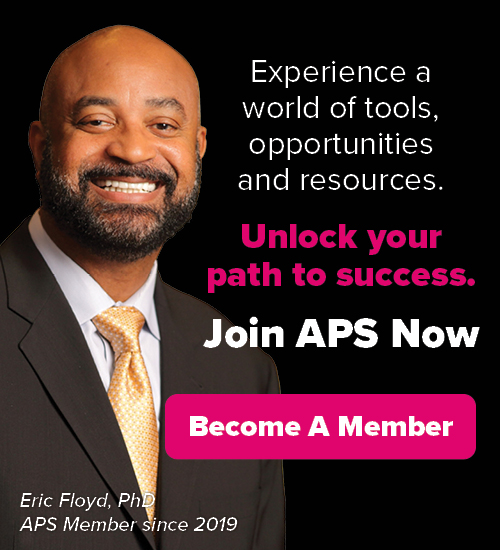- Membership & Community
-
Publications & News
- Journals
-
Newsroom
-
The Physiologist Magazine
- 2019
- 2020
- 2021
- 2022
- 2023
- 2024
- In Depth
-
Mentoring Forum
- Net Worth
- Take Care
- You … In Charge
- Work. It. Out.
- Working Off-site
- Location, Location, Location?
- Student Support
- Progressing to Postdoc
- Relationship Building
- Let’s Get It Started
- What Do We Value?
- It’s a Postdoc Life
- Coronavirus Contributions
- Creative Communications
- Selection Process
- Conference Connections
- Postdoc Appreciation
- Research Rewards
- Focus on Teaching
- Industry Insights
- Balance Beam
- Post Postdoc
- If You Build It
- Talk It Through
- Forward Bound
- I’ve Earned My PhD. Now What?
- University Life
- Tips for Trainees
- Time Travel
- Prepare Now for the Career You Want
- Policy IQ
- Publish with Polish
- Under the Microscope
- Mentoring Q&A
- The Physiologist Magazine Readers Survey
- Evolution
- Baseline by Scott Steen, CAE, FASAE
- Find Us on Social Media
-
The Physiologist Magazine
-
Professional Development
-
Meetings & Events
-
American Physiology Summit
- #APS2024 Overview
- 2024 Photo Gallery
- Abstracts
- Awards at the Summit
- Award Lectures
- Career Networking Lunch Form
- Dates and Deadlines
- Hotel Information
- Industry Partners
- Keynote Speaker—Brian Kobilka, MD
- Keynote Speaker—Jessica Meir, PhD
- Mobile App
- NIH and NSF Program Officer Panel Discussion Form
- Off-site Summit Meetups
- Physical Poster Information
- PhysioHub
- Pre-Summit Events
- Registration
- Section & Group Banquet Tickets
- Speaker Audiovisual Instructions
- Summit FAQs
- Summit Newsroom
- Summit Store
- Travel & Transportation
- Undergraduate Program Book
- Liability Waiver
- Summit Call for Proposals
- Industry Partners
- Martin Frank Diversity Travel Award Orientation Agenda
- Martin Frank Diversity Travel Award Networking Luncheon Agenda
- Women in Physiology Networking Event Agenda
-
2023
- APS 2023 Call for Proposals
- Shocklogic Test
- Team 2023 Task Force
- Shaping the Summit
- Schedule at a Glance
- Pre-Summit Events
- Pre-Summit Center for Physiology Education Workshop Registration
- Section & Groups Banquet Tickets
- Summit Store
- Pre-Summit Center for Physiology Education Workshop
- Press Registration
- Meet the Organizers
- Keynote Speaker—Terrie Williams, PhD
- Keynote Speaker—David Julius, PhD
- Industry Workshop Information
- Important Dates and Deadlines
- Hotel Information
- Game Changers
- Distinguished Lecturers
- Building APS 2023
- Awards at the Summit
- 2023 Summit Information
- American Physiology Summit Program
- 2023 Summit Newsroom
- 2024
- Scientific Integrity Policy
- Integrative Physiology of Exercise Conference
- From Concept to Classroom
- Webinars
- Related Meetings
- Future APS Conferences
-
Past APS Conferences
- APS Institute on Teaching and Learning
- Integrative Physiology of Exercise
- Seventeenth International Conference on Endothelin (ET-17)
- New Trends in Sex and Gender Medicine
- APS Institute on Teaching and Learning (2022)
- Control of Renal Function in Health and Disease Conference
- Comparative Physiology: From Organisms to Omics in an Uncertain World
- Conference Policies
-
American Physiology Summit
- Awards
-
Career & Professional Development
-
Career Gateway
-
Resources
- Transcript—Leading Through Conflict and Difficult Conversations
- Transcript—Managing Conflict with Colleagues
- Transcript—Leading a Team Through Conflict
- Transcript—Providing Difficult Feedback
- Transcript—Team Dynamics and Culture Primer
- Transcript—Building a Team
- Transcript—Leading a Team Assigned to You
- Transcript—Creating a Team Culture
-
Resources
- Career Navigator
- Center for Physiology Education
- Job Board
- Mentoring
- APS Graduate Physiology & Biomedical Science Catalog
-
Career Gateway
-
Meetings & Events
-
Advocacy & Resources
- Policy Areas
-
Resources
- Researcher Resources
- Educator Resources
- Trainee Resources
- Student Resources
-
APS Graduate Physiology & Biomedical Science Catalog
- Augusta University
- Des Moines University
- East Tennessee State University
- George Washington University
- Louisiana State University Health Sciences Center Shreveport
- Mayo Clinic Graduate School of Biomedical Sciences—Biomedical Engineering & Physiology
- Medical College of Wisconsin
- Michigan State University
- New York Medical College
- Nova Southeastern University
- Pennsylvania State University
- Saint Louis University
- Texas A&M University
- Texas A&M University Medical Physiology
- Stony Brook University
- The University of Iowa
- The University of Mississippi Medical Center
- University of Alabama at Birmingham
- University at Buffalo
- University of Colorado
- University of Delaware
- University of Florida
- University of Louisville
- University of Michigan
- University of Minnesota
- University of Missouri-Biomedical Sciences
- University of Nebraska Medical Center
- University of Oregon
- University of South Carolina School of Medicine
- University of Tennessee Health Science Center (UTHSC)
- University of Texas Health Science Center
- Virginia Commonwealth University
- Wayne State University
- Wake Forest University
- Physiology Department Catalog Submission Form
- Career Gateway
- Women's Health Research Initiative
- Diversity, Equity & Inclusion
- Advocacy
- About APS
- Nonmembers
- $0.00
- Members
- $0.00
November 18, 2020
11 a.m. EST
Christopher Banek, PhD
In a world that is becoming progressively smaller with the expansion of virtual conferences and meetings, small group presentation skills are arguably more important than ever. This presentation will cover various small-group presentation scenarios and tactics to simplify and strengthen the message conveyed.
Kelly Hyndman, PhD
As technology advances, so do the way and means that we communicate science. These days, it is more than presenting a seminar at a conference where we can communicate with a large audience. For the next-generation scientist, incorporating social media and developing effective digital content will be key for growing your scientific reach.
 Christopher Banek, PhD
Christopher Banek, PhD
Banek is currently an assistant professor at the University of Arizona College of Medicine in the Department of Physiology. His laboratory is currently supported by an NIH R00 Award, primarily focused on delineating the roles of peripheral sympathetic and sensory nerves in mediating arterial pressure control and renal function under healthy and hypertensive conditions. He has received several awards from international and national scientific societies for his research, including the APS, most recently the Michael J. Brody Award and the New Investigator Award—both from the Neural Control and Autonomic Regulation Section of APS. In addition to running his Cardiovascular Neurophysiology research laboratory, Banek serves on several national society committees, including his current service as chair of the APS Trainee Advisory Committee. Banek earned his PhD in human physiology at the University of Oregon in 2014, where he focused on mitigating the development of preeclampsia through exercise or pharmacological mimetics of exercise under the mentorship of Christopher Minson, PhD, and Jeffrey Gilbert, PhD. His postdoctoral training was in cardiovascular physiology under the mentorship of John Osborn, PhD, at the University of Minnesota. It was there he established his research interests to defining the role of renal sensory nerves in the development and maintenance of salt-sensitive hypertension and renal inflammation.
 Kelly Hyndman, PhD
Kelly Hyndman, PhD
Hyndman received her PhD in 2008 in zoology from the University of Florida under the mentorship of David Evans, PhD. Her doctoral work focused on elucidating the evolution and physiology of the endothelin system in fishes. She completed postdoctoral research at the Medical College of Georgia under the mentorship of Jennifer Pollock, PhD. There, she tested the hypothesis that endothelin and nitric oxide work in the kidney to promote salt excretion. Now, as a principle investigator, she has two focused areas of research: Determining the physiological significance of the post-translational modification called lysine acetylation in the kidney; and determining if histone deacetylase enzymes are dysfunction in acute kidney injury leading to chronic kidney disease. Episodes of acute loss of kidney function are associated with increased risk of long-term decline in kidney function. Hyndman’s physiological studies are funded by a K01 and R03, while her acute kidney injury/chronic kidney disease studies are funded by the UAB-UCSD O’Brien Center Pilot and Feasibility Grant Award and the Dr. Priya Nagar Pilot Award for Kidney Research. She has published over 40 manuscripts, and serves on a number of national societies including the Media and Communications Committee of the American Society of Nephrology and the APS Career Opportunities in Physiology Committee. She currently serves on the VA Merit Nephrology Study Section and was recently appointed to the editorial board for the prestigious journal, Hypertension.


